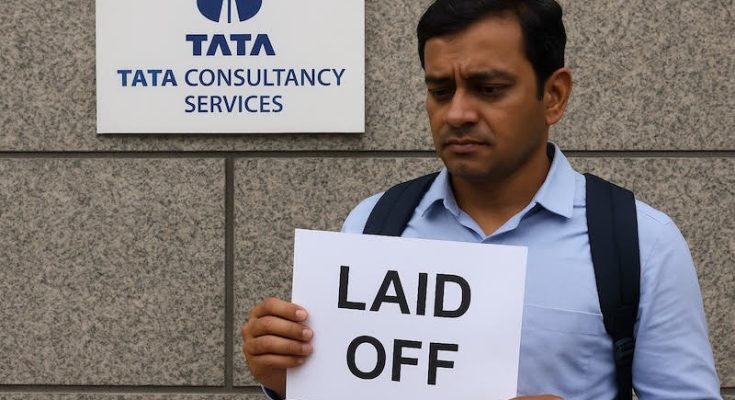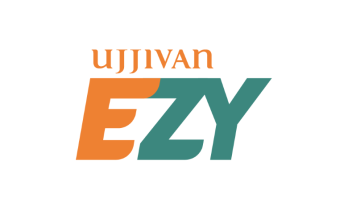#AI# TCS# Jobcuts# TCS Layoffs# TCS Workforce# TCS 12#000 Employees# Sam Altman# Microsoft
IBNS-CMEDIA: The Artificial Intelligence wave is slowly eliminating several tech jobs with multiple global companies, including Microsoft and Intel, laying off staff in recent months, and now the wave of job cuts has hit India, with Tata Consultancy Services (TCS) planning to remove 12,000 of its global workforce.
TCS, one of the biggest Indian IT giants, will remove 2 percent of its global workforce over the next year.
The 2 percent global workforce stands for more than 12,000 employees of the Tata-owned firm.
In a statement shared with CNBC-TV18, TCS said the decision is part of a strategic shift involving multiple initiatives, including investments in emerging technologies, expansion into new markets, large-scale deployment of artificial intelligence (AI), and a revamp of its infrastructure and workforce model.
According to reports, the company will trim the middle and the senior-grade employees.
The IT company further said in the statement: “As part of this journey, we will also be releasing associates from the organisation whose deployment may not be feasible. This will impact about 2% of our global workforce, primarily in the middle and the senior grades, over the course of the year.”
As per TCS website, it employs a highly skilled workforce of over 613,069 consultants in 55 countries and 180 service delivery centres across the world. The company has been recognised as a top employer in six continents.
TCS generated consolidated revenues of US $30 billion in the fiscal year ended March 31, 2025.
Unbilled employees to be targeted
Speaking on the planned reduction of workforce, sources told The Times of India that the company has begun focusing on employees who have remained ‘unbilled’.
It refers to people who are on the ‘bench’.
Several employees who spoke to TOI on condition of anonymity said that those impacted had been on the bench for anywhere between 3 and 18 months.
Forum for IT Employees (FITE) condemns TCS’ plan
The Forum for IT Employees (FITE), an organisation that fights for the rights of IT employees, hit out at TCS over its decision and wrote on X: “Today, TCS—India’s largest IT employer—announced fresh layoffs today [sic], targeting around 12000 thousands of employees. We at FITE (Forum for IT Employees) strongly condemn this inhumane and unethical move. Layoffs without due process or transparency are a violation of employees’ rights and dignity.”
“TCS is NOT in financial distress. Layoffs during stable quarters are purely profit-driven. TCS should not directly force employees to resign. Rather it should provide Notice period pay + Severance pay + Insurance continuity for up to 1 year to the affected employees,” it said.
Global trend
The year 2025 saw several top firms eliminating employees, with experts blaming the onslaught of AI as one of the key factors driving the layoff.
Intel
Semiconductor-producing giant Intel undertook major restructuring by announcing multiple layoffs this month.
According to media reports, Intel is laying off 5000 employees across four states in the US in July.
Layoffs are not limited to the US. Several other reports suggest that Intel is also laying off hundreds of its staff from Israel, especially those working at its Kiryat Gat campus, reported The Indian Express.
Microsoft
Microsoft announced its biggest workforce adjustment in July by announcing the decision to reduce 9100 employees from the global workforce.
AI Experts’ Warning
Jim Farley, the CEO of Ford, has warned AI will replace half of the white-collar workers in the US.
He was quoted as saying by Business Insider: “Artificial intelligence is going to replace literally half of all white-collar workers in the US.”
OpenAI CEO Sam Altman recently warned that entire job categories could be wiped out by artificial intelligence.
His remark echoed the sentiment that technology can cause major disruption in the labour market across the globe.
During his most recent trip to Washington, DC, Altman told Federal Reserve vice-chair for supervision Michelle Bowman that “some areas” in the job market will be “just like totally, totally gone” as they’re replaced by AI agents, reported Futurism.
Artificial Intelligence (AI) is on course to become a $4.8 trillion global market by 2033 – roughly the size of Germany’s economy – but unless urgent action is taken, its benefits may remain in the hands of a privileged few, a new UN report warns.
The Technology and Innovation Report 2025, released this year in April by the UN Conference on Trade and Development (UNCTAD), sounds the alarm on growing inequality in the AI landscape and lays out a roadmap for countries to harness AI’s potential.
The report shows that just 100 companies, mostly in the United States and China, are behind 40 per cent of the world’s private investment in research and development, highlighting a sharp concentration of power.
At the same time, 118 countries – mostly from the Global South – are missing from global AI governance discussions altogether.
UNCTAD Secretary-General Rebeca Grynspan underlined the importance of stronger international cooperation to shift the focus “from technology to people,” and enable countries “to co-create a global artificial intelligence framework”.
A jobs revolution
The report estimates that up to 40 percent of global jobs could be affected by AI.
While the technology brings new opportunities, especially through productivity gains and new industries, it also raises serious concerns about automation and job displacement – especially in economies where low-cost labour has been a competitive advantage.
But it’s not all bad news. UNCTAD’s experts argue that AI is not just about replacing jobs – it can also create new industries and empower workers.
If governments invest in reskilling, upskilling and workforce adaptation, they can ensure AI enhances employment opportunities rather than eliminates them.





